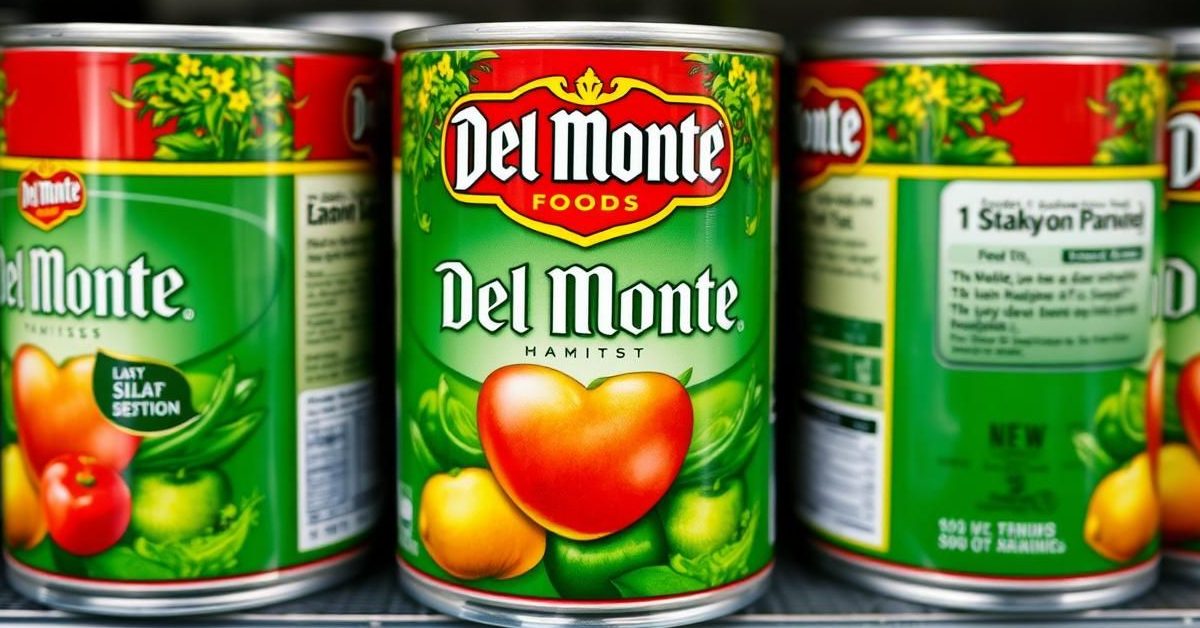A Legacy Under Pressure: Del Monte Foods Files for Bankruptcy Protection
For nearly 140 years, the iconic Del Monte brand has been a fixture in American kitchens, synonymous with its distinctive canned fruits and vegetables. Now, this venerable institution, based in Walnut Creek, California, faces a profound challenge to its enduring legacy. Del Monte Foods has officially filed for bankruptcy protection, a move that underscores significant shifts in consumer behavior and the complex economic landscape impacting even the most established food giants.
Navigating a Strategic Sale Amidst Financial Strain
In an effort to stabilize operations and secure its future, Del Monte has announced a planned asset sale. To facilitate a smooth transition during this period, the company has successfully secured $912.5 million in debtor-in-possession financing. This critical funding will allow the business to continue its day-to-day operations without interruption while the sale process unfolds. CEO Greg Longstreet articulated the company’s strategic rationale, stating that “a court-supervised sale process is the most effective way to accelerate our turnaround and create a stronger and enduring Del Monte Foods.”
The Seismic Shift in Consumer Preferences
At the core of Del Monte’s struggles lies a fundamental evolution in how modern consumers approach their food choices. The traditional appeal of preservative-laden canned goods has diminished significantly, as a growing segment of the population opts for fresher, organic, or less-processed alternatives. Sarah Foss, Global Head of Legal and Restructuring at Debtwire, concisely summarized this trend, noting that “Consumer preferences have shifted away from preservative-laden canned food in favor of healthier alternatives.”
While Del Monte Foods boasts a diverse portfolio, including popular brands like Contadina tomatoes, College Inn, and Kitchen Basics broths, along with the burgeoning Joyba bubble tea, the success of these newer ventures hasn’t been enough. Despite healthy sales growth in fiscal year 2024 for Joyba and their broth lines, the consistent decline in demand for Del Monte’s signature canned products proved too significant to offset.
Economic Headwinds: Inflation and Tariffs Weigh Heavily
Beyond changing tastes, broader economic pressures have further squeezed Del Monte. Soaring grocery inflation has pushed consumers to seek out more budget-friendly options, often leading them towards cheaper store brands. This intensified price sensitivity creates fierce competition for established national brands like Del Monte.
Adding another layer of complexity, the imposition of a 50% tariff on imported steel, enacted by President Donald Trump’s administration in June, has directly impacted Del Monte’s operational costs. Steel is a critical component in the manufacturing of food cans, meaning this tariff significantly inflates the price Del Monte and other producers must pay for their packaging, consequently increasing overall production expenses.
Legal Battles and Increased Interest Burdens
The path to bankruptcy has also been paved with internal financial challenges. Del Monte Foods, which is owned by Singapore’s Del Monte Pacific, faced a significant legal challenge last year. A group of lenders filed a lawsuit, objecting to the company’s proposed debt restructuring plan. Although the case was settled in May, the resolution came with a cost: a new loan that added an estimated $4 million annually to Del Monte’s interest expenses. This increased financial burden, coupled with the aforementioned market shifts and rising costs, accelerated the need for a comprehensive strategic overhaul, culminating in the decision to initiate a court-supervised sale of assets.














